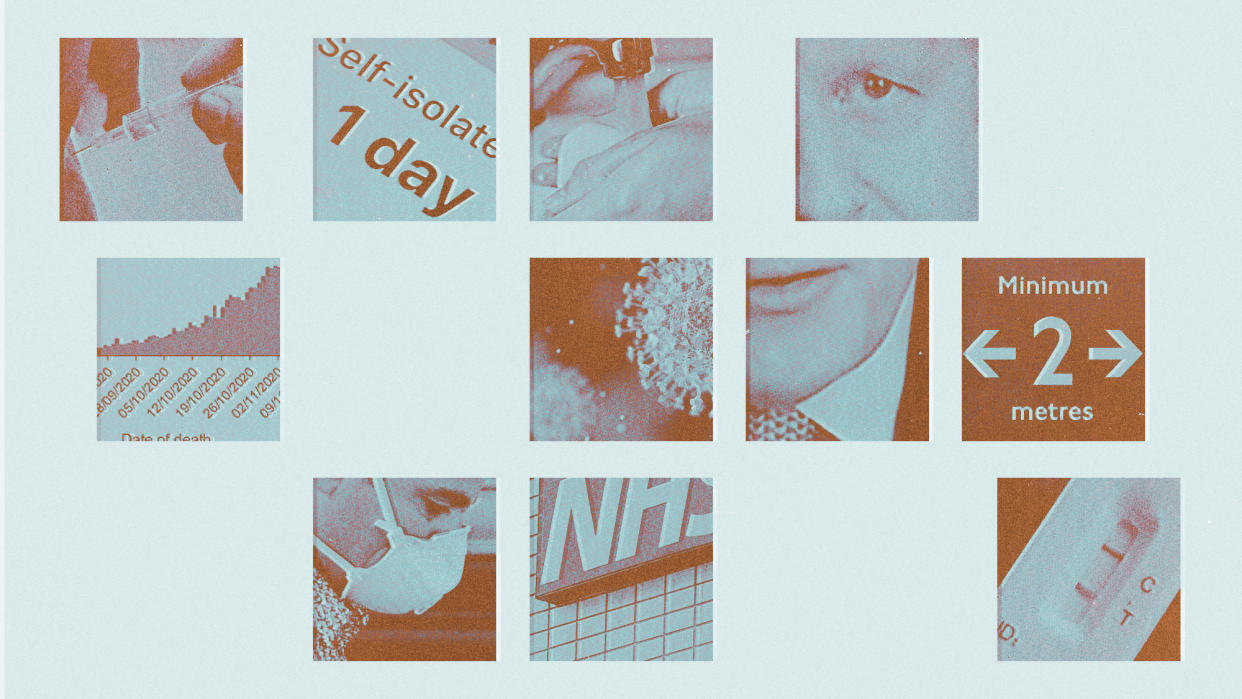Covid four years on: have we got over the pandemic?

Four years on from the first UK lockdown, and almost a year since the World Health Organization declared an end to the Covid-19 emergency, many people are still feeling the effects of the pandemic.
A survey by YouGov last week found that 44% of Britons feel the pandemic is "still ongoing". Some remain traumatised by the Covid crisis, while others are nostalgic for aspects of it – but what unites them is that they've yet to get over the experience.
What did the commentators say?
Lockdown was a "glorious 18-month holiday", said Giles Coren in The Times. We "got to bunk school, hunker down with our families, read books, learn languages, cook food, avoid foreign travel, dodge most social interaction" and go for "nice long walks in the park".
Fellow Times columnist Harriet Walker also admitted to a touch of "lockdown nostalgia", writing that "for many people, the enforced planlessness of lockdown was actually quite nice".
They are not alone. "Gen Z TikTok users from the US and the UK have reminisced about how much they are missing this period of their lives," said the Daily Mail last year. Some described the quarantine period as "their 'best year ever', and a 'well-deserved break'".
One TikToker said: "The way we took quarantine for granted makes me want to cry. There's literally nothing I miss more than beginning of 2020."
But many other people recall it less fondly. A study published last year in the Netherlands found that half of the PTSD cases being treated were related to Covid experiences.
"Are we all traumatised by the pandemic?" asked Claudia Canavan in Women's Health. Emma Svanberg, a psychologist specialising in trauma, said: "I don't think we're moving on from the pandemic. I think we're stuck." The pandemic was a "collective trauma, which is continuing to have ripples", Svanberg told the magazine.
Covid "delivered a body blow" to the nation, said The Guardian, and one "from which experts say recovery will not be easy or automatic". Babies and children "appear to have suffered developmental setbacks due to lengthy periods of isolation", while "older people, who needed protecting most from Covid, were also uniquely vulnerable to the effects of physical inactivity".
A "mindset shift that persists so long after Covid" means "the fear must now be that it is permanent", wrote Annabel Denham in The Telegraph. Throughout lockdown, we told children that "it was fine – even desirable – not to go to school", but absenteeism remains "stubbornly high". There has also been a "surge", particularly among younger people, in mental ill health.
A couple from West Sussex who are still shielding four years on from the first Covid lockdown said they feel they have been "left behind". Gayle and Leslie Howard still wear masks when they leave the house. "There is over a million people still affected by shielding following the pandemic, but we are suffering," Gayle, who had a kidney transplant in 2018, told the BBC.
The pandemic could also have had an intellectual impact. A recent study suggested that "even people who completely recovered from what felt like a mild dose of Covid" might have suffered a cognitive deficit equal to three IQ points, compared with someone who was never infected, wrote Pilita Clark in the Financial Times.
While emphasising that the study had "limitations", she said that in the US this would mean an additional 2.8 million adults would be left with an IQ below 70, a threshold that suggests a level of intellectual disability that can require "significant societal support".
What next?
The next pandemic is just "around the corner", Dr Nathalie MacDermott, clinical lecturer in infectious diseases at King's College London, told Sky News. The world is "rife for outbreaks".
We "want to believe we can just go back to normal and I understand that entirely", she said. "But the next pandemic is around the corner – it might be two years, it could be 20 years, it could be longer."
From 1 April, people concerned about or susceptible to the coronavirus will be able to get a Covid vaccine at Boots for £99. It is the first time a Covid-19 vaccine has been available outside the NHS since the mass vaccination programme was launched in December 2020.

